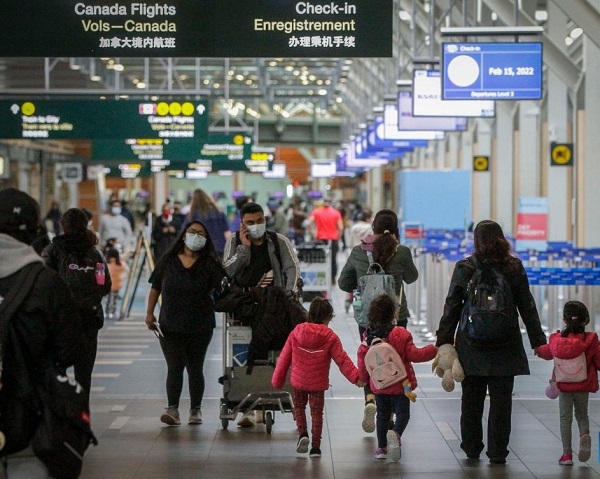New Delhi, (Samajweekly) Exorbitant jet fuel prices on the back of high crude oil costs are expected to drive up domestic air fares from their current levels.
In recent days, fares have risen by around 20-25 per cent on most domestic routes on a month-on-month basis. With ATF prices being hiked to over Rs 1 lakh per kilolitre, fares are expected to rise further.
“This time the industry had already braced for an ATF price hike, with most of the airlines hiking fares on certain legs by about 20-25 per cent in the past couple of days,” said Aloke Bajpai, Co-founder and Group CEO, ixigo.
“However, despite rising airfares, demand for travel for the upcoming summer season is still going strong. We have seen an average MoM increase of 35-40 per cent in travel search queries in March for popular leisure destinations like Goa, Port Blair, Amritsar, Varanasi, Srinagar & Andaman & Nicobar,” Bajpai added.
Presently, fuel-based expenses account for around 40 per cent of the overall operating cost of an airline.
Significantly, the trend will hamper air passenger growth for the industry.
Besides, the rise in ATF prices might derail the economic recovery of India’s aviation sector, which has been heavily battered by Covid restrictions.
“ATF constitutes about 40 per cent of the operating cost of an airline, and the recent hike of 18 per cent in ATF will put significant margin pressure on the airlines. The impact of this will be seen in increase of ticket prices, and we should see an upward revision of 5-8 per cent in air fares,” said Jagannarayan Padmanabhan, Director and Practice Leader, Transport and Logistics, CRISIL Infrastructure Advisory.
“This has come at a time when the industry was coming back to normalcy and the increased fare could prove to be a dampener for leisure travellers,” Padmanabhan added.
According to Suprio Banerjee, Vice President and Sector Head, ICRA: “ATF represents the single-largest cost element for airlines, accounting for 30-40 per cent of their total operating expenses. As such, the profitability of the airlines is significantly linked with ATF prices, which have witnessed consistent rise and have risen 57.2 per cent in March 2022 on a YoY basis.
“With limited pricing power of the airlines, and given the stiff competition with passenger traffic still in recovery mode, the rise in ATF prices is certainly going to impact the earnings profile adversely in the near term.”
In India, the domestic ATF prices are derived from international fuel prices, denominated in the US dollar, thereby rendering the ATF prices susceptible to exchange rate movements.
Notably, the rupee has also seen depreciation against the US dollar lately, which has been reflected in the prices.
The ATF prices are much more expensive than international benchmarks due to high levels of taxation.
The industry has been demanding that the fuel type be brought under the ambit of GST, similar to the status given to ‘Bunker Diesel’ which is used in the shipping sector.
On Wednesday, high crude oil prices led OMCs to hike ATF prices to more than Rs 1 lakh per kilolitre. In the national capital, the price of jet fuel was raised by 18.32 per cent to Rs 1,10,666.29 per kilolitre (kl) from Rs 93,530.66 per kl.
In the other metro cities of Kolkata, Mumbai and Chennai, the price was increased to Rs 1,14,979.70, Rs 1,09,119.83 and Rs 1,14,133.73 per kl, respectively.
The rise came as crude oil price has remained on elevated levels due to the Russia-Ukraine crisis. Fuel retailers revise jet fuel prices on a fortnightly basis.
“Aviation fuel prices increased by 18 per cent, accounting for over 40 per cent of a plane’s operating cost,” said Kshitij Purohit, Lead of Commodities and Currencies at CapitalVia Global Research.
“It has climbed six times since 2022, reaching Rs 1,10,666 per kl. The increase in the price of ATF may result in an increase in the price of airline tickets; however, during the festive season, people are more likely to travel in India, thus companies may raise prices moderately to avoid losing volume.”
Bhanu Patni, Senior Analyst at India Ratings and Research, said: “The current hike in ATF prices is due to high crude oil cost which has been rising due to geo-political tensions between Russia and Ukraine. We have seen ATF prices rise by over 40 per cent since the start of 2022.”










